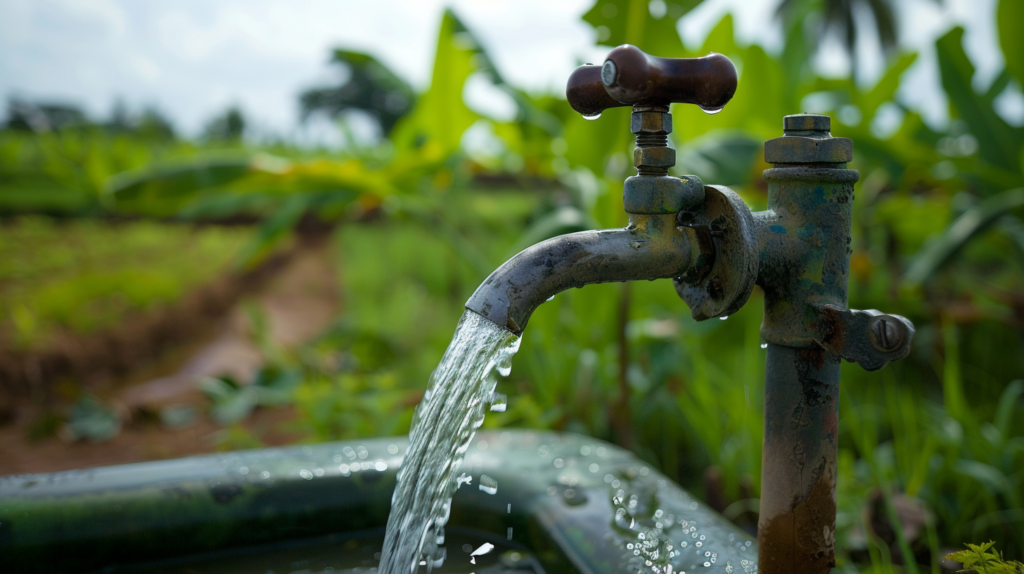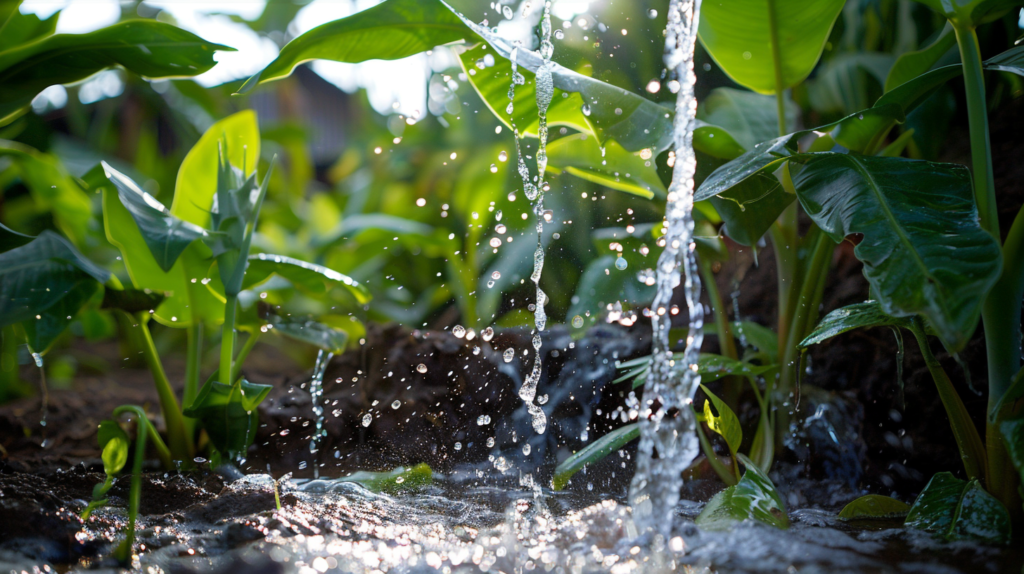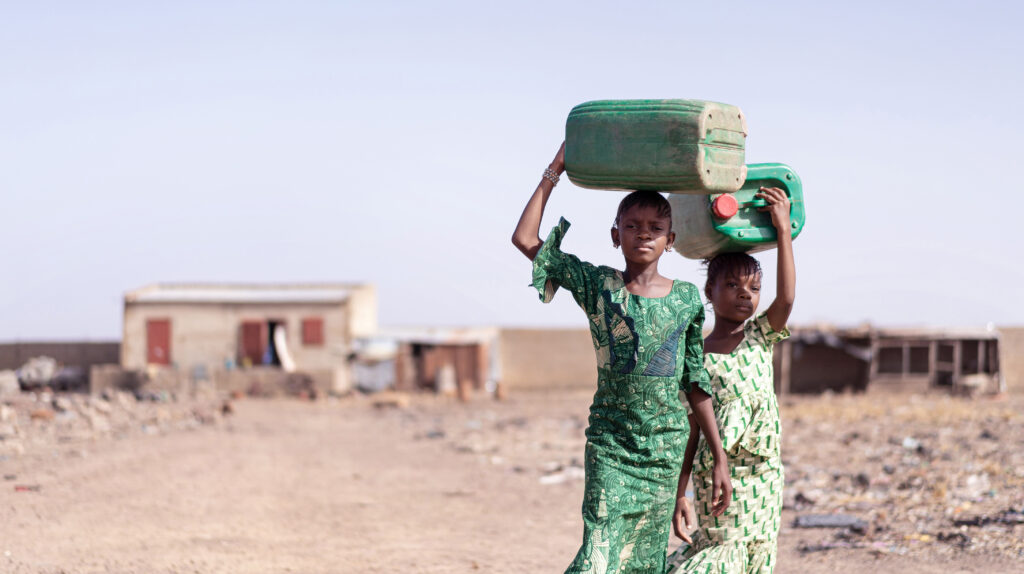Water conservation has become a critical issue in Africa, where agriculture is one of the mainstays on which the livelihoods of most of the population are built and is a pillar of the economy. As the world demand for African products, including cocoa, coffee, and vanilla, increases, the farmers’ use of agricultural practices articulated between the lines to grow these crops becomes subject to scrutiny, especially regarding water usage. Sustainable sourcing approaches are essential in meeting the global market requirements and guaranteeing the environmental and social welfare of the continent’s demand.
The Importance of Water in African Agriculture
Agriculture in Africa depends on rain for watering, but only a tiny percentage of land is irrigated. This causes African agriculture to be very vulnerable to weather pattern variations, mainly to droughts that are getting more frequent thanks to climate change. Unfortunately, Africa comprises some of the globe’s most water-deficient areas, but it is expected to at least double its agricultural output by 2050 to feed its growing population. This picture tells us the significance of water conservation in sourcing ingredients and emphasizes the need for effective conservation strategies.
Challenges of Water Management
The limited infrastructure is one of Africa’s most significant obstacles to water conservation practices. Most rural areas have inadequate water storage and irrigation systems, where most farming is carried out. Besides that, the traditional flood irrigation method is still widely used, which is inefficient and results in massive water wastage.
Furthermore, there is a critical need for training and education among farmers regarding sustainable water use. Smallholder farmers, who produce many of Africa’s exports, often lack the knowledge or resources necessary to implement more sustainable practices.

Strategies for Sustainable Water Use
Multiple options are available to encourage water conservation in sourcing African ingredients. An efficient measure could be drip irrigation systems, which convey water directly to the roots of plants, thus reducing the amount that evaporates and runs off. These systems increase water use efficiency but need initial investments in technical know-how, which might obstruct small-scale and individual farmers.
Crop selection also is as important as anything else. The water footprint associated with agriculture can be decreased by promoting growing drought-tolerant crop varieties. For instance, sorghum and millet are low-water consuming crops, versus sugarcane and cotton, which are water-sucking. These can be substituted based on marketing demands.
Alongside that, utilization of rainwater harvesting methods for rainy seasons water collection and storage can be incorporated. This withdrawn water is stored and utilized during the dry months, thus reducing the use of unpredictable rainfall resources.
The Role of Governments and Corporations
Governments play a vital part in the implementation of conservation water initiatives. This can be done through subsidies for water-efficient technologies and policies that ensure water resource protection and sustainable farming practices. Moreover, governments can invest in infrastructure that increases water management, dams and reservoirs, ensuring constant water supply.
Corporations, mostly food, beverages, and other industries, possess significant accountability. By embracing the sustainability criteria residing in their sourcing norms, corporations can promote the adoption of water-conserving strategies. One of the most effective strategies for promoting sustainable agriculture involves developing programs that offer farmers technical assistance and financial incentives in exchange for introducing sustainable practices.

Conclusion
Water conservation in African ingredient sourcing is a priority that carries with it an environmental responsibility and an essential element of sustainable economic development in the continent. Joint efforts of local farmers, governments, and international corporations can bring sustainable practices into Africa’s agricultural sector, which would help guarantee its vitality in the long run. This comprehensive approach will preserve the continent’s water resources and enhance the livelihoods of her farming communities, ensuring they can meet their needs and aspirations without putting the well-being of their descendants at risk.
References
Asgharnejad, H., Khorshidi Nazloo, E., Madani Larijani, M., Hajinajaf, N., & Rashidi, H. (2021). Comprehensive review of water management and wastewater treatment in food processing industries in the framework of water‐food‐environment nexus. Comprehensive Reviews in Food Science and Food Safety, 20(5), 4779-4815.
Darko, R. O., Liu, J., Yuan, S., Sam-Amoah, L. K., & Yan, H. (2020). Irrigated agriculture for food self-sufficiency in the sub-Saharan African region. International Journal of Agricultural and Biological Engineering, 13(3), 1-12.
Gachene, C. K., Nyawade, S. O., & Karanja, N. N. (2020). Soil and water conservation: An overview. Zero Hunger, 810-823.
Wilder, M. O., Varady, R. G., Gerlak, A. K., Mumme, S. P., Flessa, K. W., Zuniga-Teran, A. A., … & Megdal, S. B. (2020). Hydrodiplomacy and adaptive governance at the US-Mexico border: 75 years of tradition and innovation in transboundary water management. Environmental Science & Policy, 112, 189-202.


